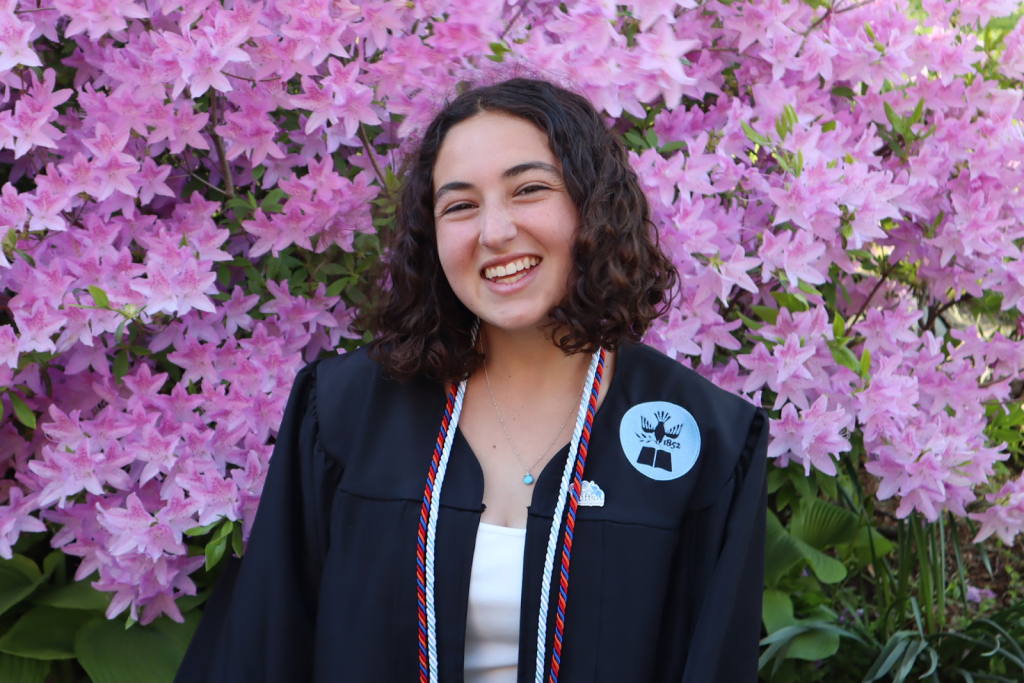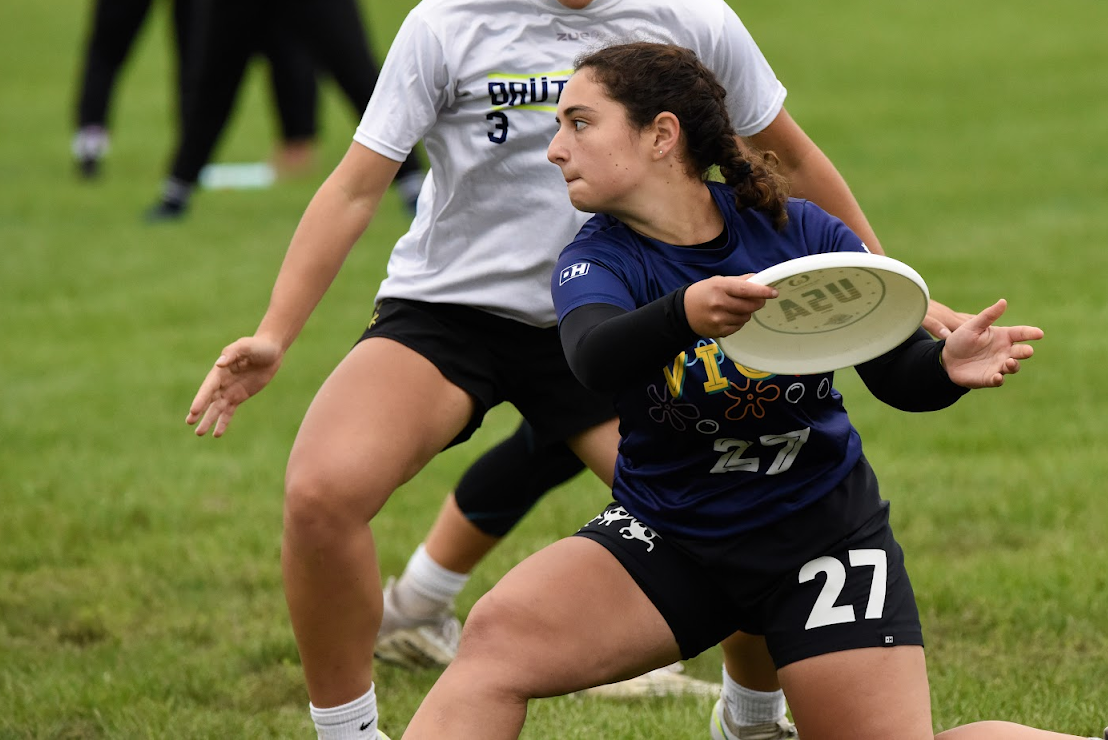
Tell us about where you are from and what your childhood was like.
I’m from Oakland, CA, where I lived with my parents and older brother until coming to Tufts for undergrad. I have lots of cousins and both sets of grandparents on the West Coast, so I spent a lot of time with my family growing up. As a kid I did activities across lots of disciplines: soccer, softball, violin, theater, youth group, etc. I was always interested in math and science but didn’t find my passion for engineering until high school.
When did you first learn about engineering? What about it interested you the most?
My high school had elective programs in a handful of fields that students could decide to start in 10th grade. Engineering was one of the options, and although I was apprehensive at first, I decided to join because it was marketed towards students with an interest in math and science. I didn’t quite know what engineering meant, but the first elective class I took was about engineering drawings, both drafting by hand and learning CAD. I really enjoyed how 3D modeling and spatial reasoning felt like a puzzle to figure out how shapes looked in different planes. I’ve now learned that what I was taught in high school is only a small piece of engineering, but it helped me develop an engineering mindset and identity.
Why did you choose to study engineering education?
My path to engineering education is related to my high school engineering program. I had never even heard the word engineering, let alone knew what it meant until I was introduced to the program. Because of this, it felt like an unattainable skill that I couldn’t succeed at. It wasn’t until I took engineering classes and realized I had been practicing these skills my whole life that I knew I was fit to be an engineer. I was lucky enough to have access to this type of education early on, but many are not as fortunate. This sparked a passion in me to expand access to engineering education so more young students, especially those underrepresented in engineering, can realize that they belong in the field.
Tell us about your research.
My research is part of the Smart Playground Project. I am developing technology for playgrounds to teach children Computational Thinking as they play. If students are able to experience first-hand examples of conditionals, sequences, etc., in a fun environment where they have agency, they can more easily develop an intuition for Computational Thinking. These problem solving skills will help them through their schooling, especially when learning computer science or engineering. My specific research has been developing the Smart Modules, stuffed animals with lights and buttons that the children will carry around the playground. The modules interact with other sensors around the playground, allowing students to create their own experiences and participate in activities around different CT concepts. We recently tested these prototypes with kindergarten students in California!
Why did you choose to study this?
I started on the Smart Playground Project as a summer intern at the CEEO during my undergraduate time at Tufts. I enjoyed that the project combined my passion for technical work with expanding access to engineering education in a playful way. I was able to explore prototyping, coding, design, and education all in one. This prompted me to stay involved with the project through undergraduate research last spring and my master’s thesis this year.
Why did you choose to come to Tufts, and what do you like about it?
One of my priorities while looking for schools was the option for interdisciplinary study. I was drawn to Tufts’ focus on well-rounded students and the HASS curriculum in the School of Engineering. I was able to take theater, sociology, and education classes while getting my engineering degree. I also remember touring Tufts in high school and hearing how passionate Tufts students are about what they’re studying while still being outgoing and social. That sounded like the type of people I wanted to be surrounded by, and have found it to be true throughout my time here.
What do you want to do after graduation?
Following graduation, I want to stay in Boston and work in educational robotics development. I would love to continue working with kids while applying my technical expertise. I also want to take time to travel this summer and see friends and family!

What do you like to do in your free time?
In my free time, I love to hike, travel, and play ultimate frisbee! I play on the Tufts club frisbee team, EWO. We practice multiple times per week and travel to tournaments throughout the country. I’ve enjoyed exploring New England nature with friends and want to get up to the White Mountains to hike more often. I also enjoy building with LEGO and doing puzzles when I can!
Anything else you want us to know?
I’ve loved working at the CEEO for all five years I’ve been at Tufts and couldn’t recommend it more highly! Thank you to everyone who has helped me on this educational journey!